Acute Liver Failure SIG
Steering Committee Members
- Florent Artru, University Hospital of Lausanne, Switzerland – Topic Coordinator
- Constantine Karvellas, University Of Alberta Hospital, Edmonton, Canada – Topic Coordinator
- Dmitri Bezinover, Penn State College of Medicine, Hershey, PA, USA – Affiliated Councilor
- Audrey Coilly, Hopital Paul Brousse, Villejuif, France
- Isabel Conde Amiel, Hospital Universitario La Fe, Valencia, Spain
- Anil Dhawan, King’s College Hospital, United Kingdom
- Ahmet Gurakar, Johns Hopkins University School of Medicine, Baltimore, MD, USA
- Akila Rajakumar, Dr Rela Institute & Medical Centre, Chennai, India
- Fuat Saner, Klinik für Allgemeine und Transplantationschirurgie Universitätsklinikum Essen, Germany
- Ram Subramanian, Emory University Hospital, Decatur, GA, USA
- Li-Ying Sun, Beijing Friendship Hospital, Beijing, China
- Xuchen Zhang, Yale New Haven Hospital, Yale School of Medicine, USA
- Priya Walabh, University of Witwatersrand, Charlotte Maxeke Johannesburg Academic Hospital, Johannesburg, South Africa
- Iva Košuta, University Hospital Center Zagreb, Croatia
- Brian Hogan, Royal Free London NHS Foundation Trust, United Kingdom
- Tommaso Manzia, Tor Vergata University, Rome, Italy
- Pathik Parikh, Apollo Hospitals, Ahmedabad, GIDC, India
- Dhupal Patel, Addenbrooke’s Hospital, University of Cambridge, United Kingdom
- Kambiz Etesami, Children’s Hospital Los Angeles, USA
The Acute Liver Failure Special Interest Group has been created to promote communication, education and research among clinicians managing patients with acute liver failure, especially with reference to selection for and management of transplantation.
ALF is a rare condition characterised by severe hepatocyte injury evolving over days or weeks and often progressing to lethal multi-organ failure. Despite significant recent advances, liver transplantation is the only life-saving treatment in around 30% of cases. Causes of ALF are numerous, including paracetamol toxicity, other drug and toxin-induced liver injury, viral hepatitis (A, B or E) , autoimmune hepatitis, Wilson’s disease, hepatic ischemia, Budd-Chiari Syndrome, pregnancy-associated conditions and malignant infiltration. In 20 – 50% of cases, a cause cannot be determined. Diagnostic strategies vary widely around the world, but always require careful review of medication and dietary exposure, serological testing for viral and autoimmune causes, and liver imaging.
Because of its rarity, acute liver failure has not been studied in large, randomized trials. Most treatment recommendations are based on observational studies and expert opinion.
SIG Aims
- To promote communication between clinicians treating patients with ALF, allowing them to share experiences and information on clinical practice,
- To encourage international and multidisciplinary involvement in ALF research and education
- To disseminate ALF research findings through enhanced ILTS educational initiatives, including the Annual Congress, dedicated webinars, single-topic meetings, and joint meetings such as the AASLD-ILTS Transplant Course
- To develop research questions, consensus statements and clinical guidelines on liver transplantation for ALF,
- To collaborate with other organisations to promote research and standards of care in this condition.
Variation in causes of ALF worldwide
- Explore development of an international registry through ILTS membership networks. Data fields to be defined and analysed by the SIG Steering Committee
- Develop an international survey to identify variations in diagnostic approach
These initiatives could inform regionally-standardised etiological investigation and quality assurance strategies.
Therapeutic management
- Use the dedicated SIG email platform to share opinions on challenging cases
- Develop surveys to better understand ALF indications, management and access to liver transplantation around the world, in particular the role of liver dialysis devices
Potential future investigations
- Immediate causes of mortality in ALF, particularly bacterial sepsis and cerebral oedema
- Rare causes of ALF, elucidated through registry analysis
Edited by J R Klinck, ILTS Special Projects, 9 February 2021






